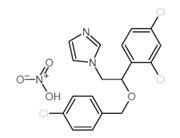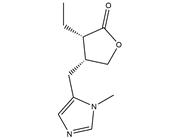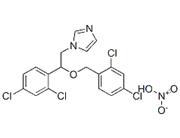1. Materials information
Names
| Name | Pilocarpine nitrate salt |
|---|
| Synonym | More Synonyms |
|---|
Pilocarpine nitrate Biological Activity
| Description | Pilocarpine nitrate is a selective M3-type muscarinic acetylcholine receptor (M3 muscarinic receptor) agonist. |
|---|
| Related Catalog | Signaling Pathways >> GPCR/G Protein >> mAChR Signaling Pathways >> Neuronal Signaling >> mAChR Research Areas >> Neurological Disease |
|---|
| Target | M3 muscarinic receptor[1] |
|---|
| In Vitro | To evaluate the cytotoxicity of Pilocarpine, the morphology and viability of human corneal stromal (HCS) cells are examined by light microscopy and MTT assay, respectively. Morphological observations show that HCS cells exposed to Pilocarpine at a concentration from 0.625 to 20 g/L exhibit dose- and time-dependent proliferation retardation and morphological abnormality such as cellular shrinkage, cytoplasmic vacuolation, detachment from culture matrix, and eventually death, while no obvious difference is observed between those exposed to Pilocarpine below the concentration of 0.625 g/L and controls. Results of MTT assay reveal that the cell viability of HCS cells decrease with time and concentration after exposing to Pilocarpine above the concentration of 0.625 g/L (P<0.01 or 0.05), while that of HCS cells treated with Pilocarpine below the concentration of 0.625 g/L show no significant difference to controls[2]. The partial muscarinic agonist, Pilocarpine, evokes concentration-dependent relaxation with an EC50 of 2.4 mM in isolated segments of rat tail artery that were constricted with Penylephrine (10 to 200 nM)[3]. |
|---|
| In Vivo | The Pilocarpine-induced saliva secretion of the control rats (CN) and exercised (EX) rats is examined. A significantly greater amount of saliva is induced by Pilocarpine in the EX rats than in the CN rats (P<0.01). Conversely, the Na+ concentration in the saliva of the EX rats is significantly lower than that of the CN rats (P<0.05)[1]. |
|---|
| Cell Assay | Cell viability is determined by MTT assay. Briefly, HCS cells are inoculated into a 96-well culture plate (Nunc) at a density of 1×104 cells/100 µL/well, and are cultured and treated. At a 4h interval, the Pilocarpine (0.625 to 20 g/L)-containing medium is replaced entirely with 100 µL serum-free DMEM/F12 medium containing 1.0 g/L MTT, and the cells are incubated at 37°C in the dark for 4h. After the MTT-containing medium is discarded with caution, 150 µL DMSO is added to dissolve the produced formazan crystals at 37°C in the dark for 15 min, and the absorbance at 490 nm is measured with a Multiskan GO microplate reader[2]. |
|---|
| Animal Admin | Rats[1] Male, 10-week-old Wistar rats are assigned to one of two groups, exercise (EX, n=6) and control (CN, n=6). The EX rats are kept for 40 days in cages with a running wheel (SN-451), allowing them to undertake voluntary exercise, while the CN rats are kept in cages with the running wheel locked. On the 40th day, Pilocarpine-induced saliva is measured as follows. Briefly, the rats are anesthetized, preweighed cotton was placed in their mouths sublingually, and Pilocarpine (0.5 mg/kg) is intraperitoneally injected to induce saliva secretion. Each cotton ball is then changed every 10 min for 1 h. The collected cotton balls are weighed again, and the mass of saliva secreted is calculated by subtracting the initial from the final weight. |
|---|
| References | [1]. Matsuzaki K, et al. Daily voluntary exercise enhances pilocarpine-induced saliva secretion and aquaporin 1 expression in rat submandibular glands. FEBS Open Bio. 2017 Dec 7;8(1):85-93. [2]. Yuan XL, et al. Cytotoxicity of pilocarpine to human corneal stromal cells and its underlying cytotoxic mechanisms. Int J Ophthalmol. 2016 Apr 18;9(4):505-11. [3]. Tonta MA, et al. Pilocarpine-induced relaxation of rat tail artery by a non-cholinergic mechanism and in the absence of an intact endothelium. Br J Pharmacol. 1994 Jun;112(2):525-32. |
|---|
Chemical & Physical Properties
| Boiling Point | 520.5ºC at 760 mmHg |
|---|
| Melting Point | 173,5-174°C |
|---|
| Molecular Formula | C11H17N3O5 |
|---|
| Molecular Weight | 271.27000 |
|---|
| Flash Point | 268.6ºC |
|---|
| Exact Mass | 271.11700 |
|---|
| PSA | 110.17000 |
|---|
| LogP | 1.33730 |
|---|
| Vapour Pressure | 1.16E-11mmHg at 25°C |
|---|
| Index of Refraction | 81 ° (C=2, H2O) |
|---|
| Storage condition | 2-8°C |
|---|
| Water Solubility | H2O: 0.1 g/mL, clear, very faintly yellow |
|---|
2. Packaging of materials
For powders: normal is 25kgs/Drum or bag, or larger/smaller package as request.
For liquids: normal 25kgs/drum, 180-300kgs/bucket, or IBC, determined by the nature of the product.
Or smaller package 1kg/bottle, 10kgs/bottle as request.
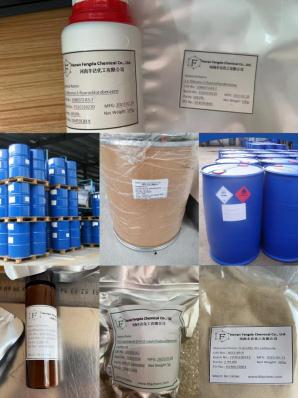
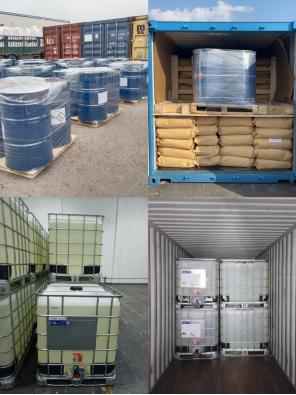
3. Shipping & Delivery
Provide door to door service
Suitable for goods under 50kg
Delivery: 3-7 days
Cost: low cost

Provide airport to airport service
Suitable for goods over 50kg
Delivery: 3-14 days
Cost: high cost

Provide seaport to seaport service
Suitable for goods over 100kg
Delivery: 2-45 days
Cost: low cost

4. Contact information
For more details, pls contact us freely.
Email address: mia@fdachem.com
Mob: 86 18336764634
WhatsApp/Skype/Wechat/LINE: 86 18336764634
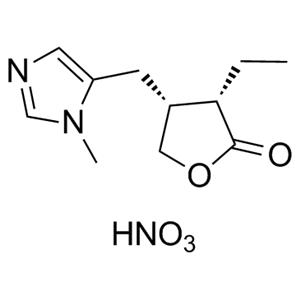


 China
China




